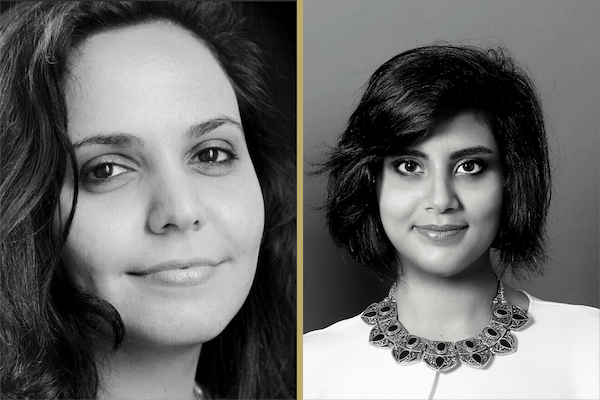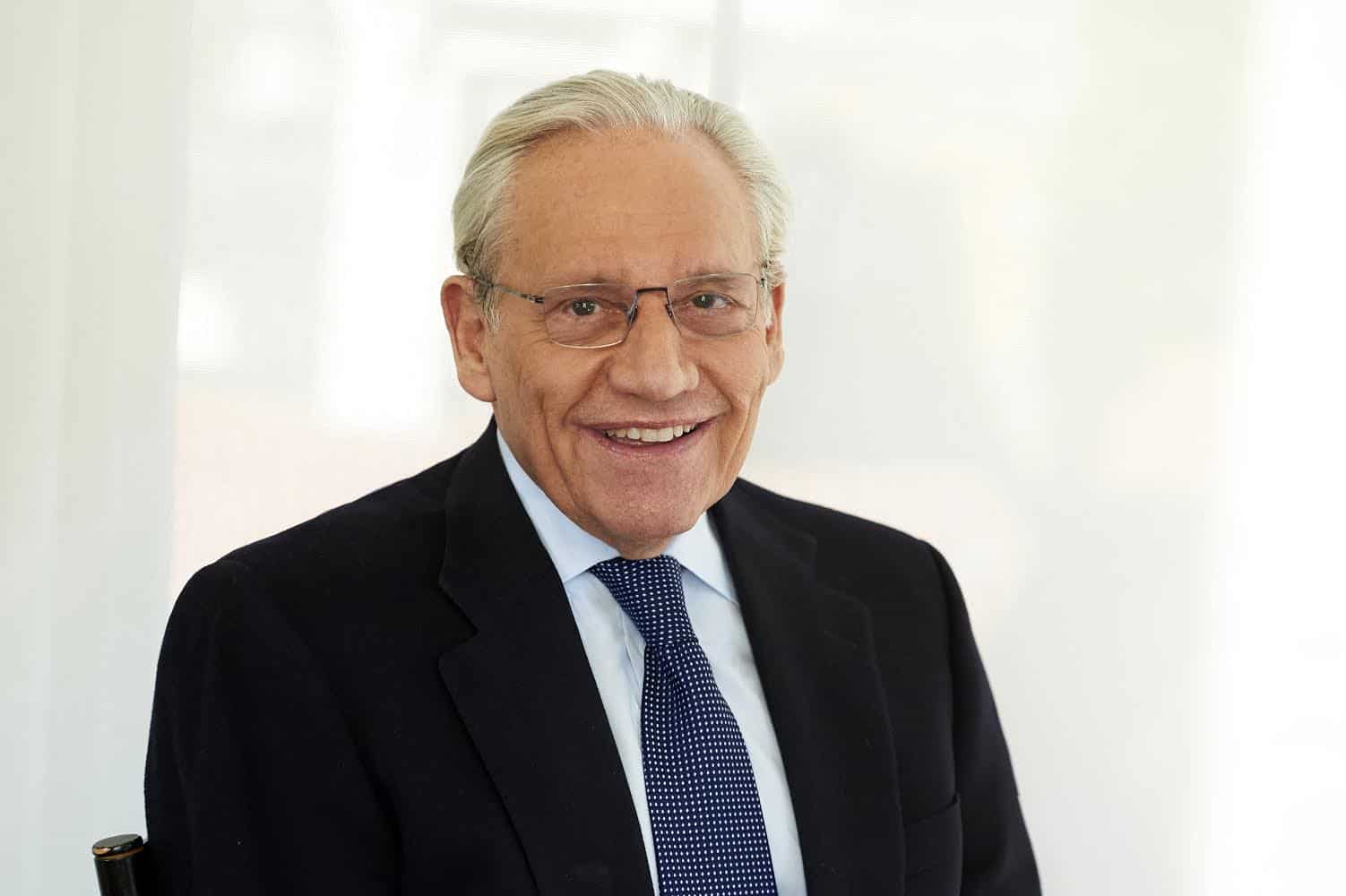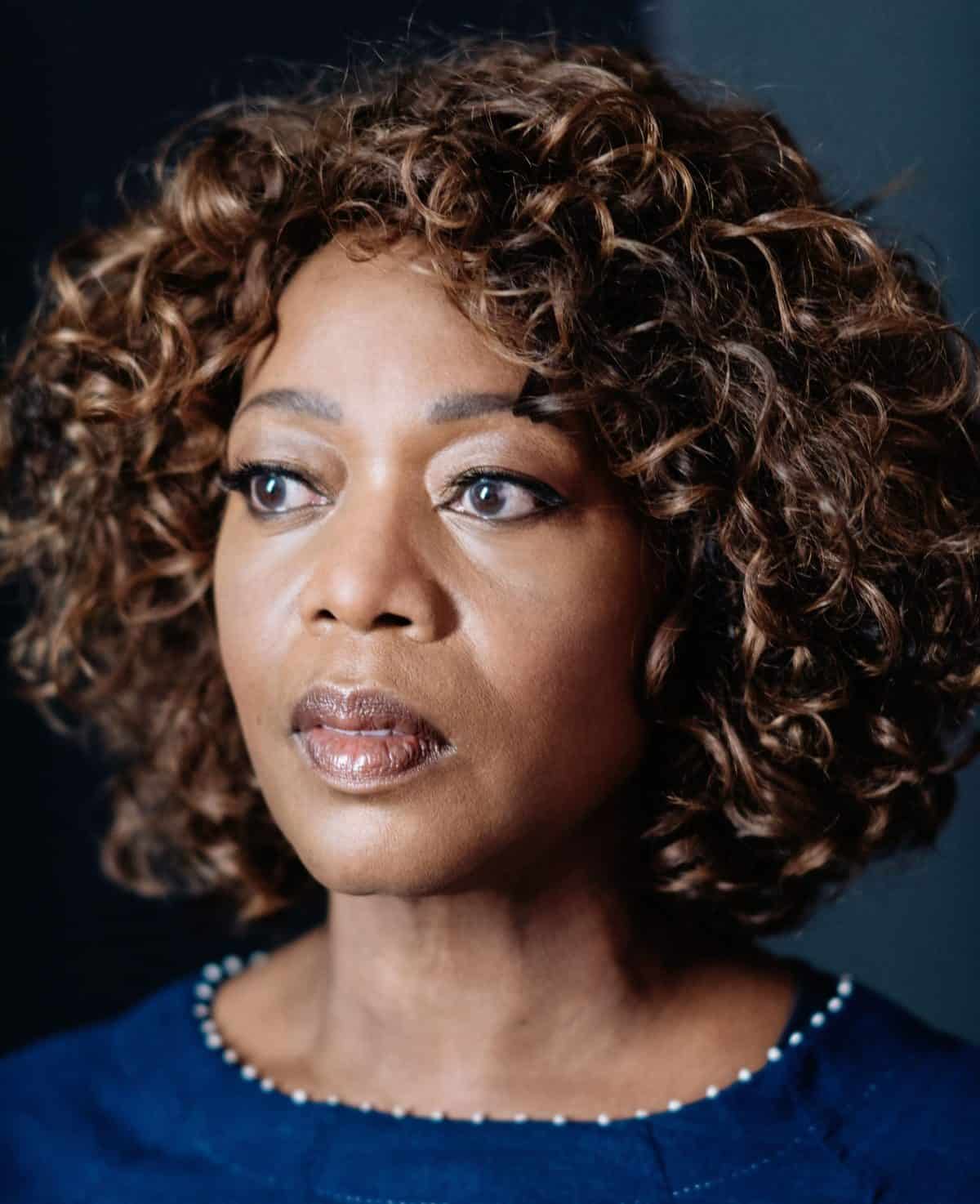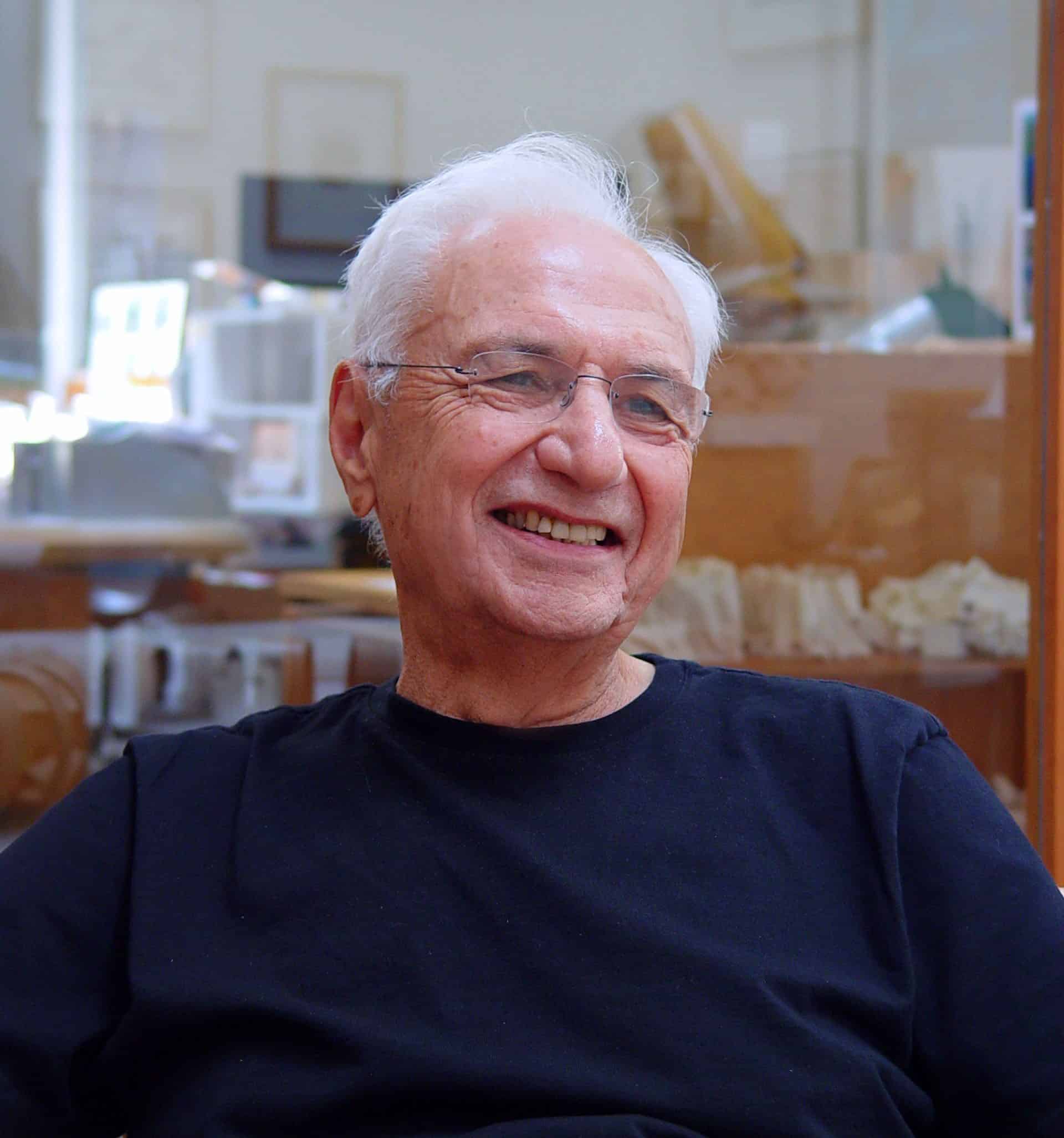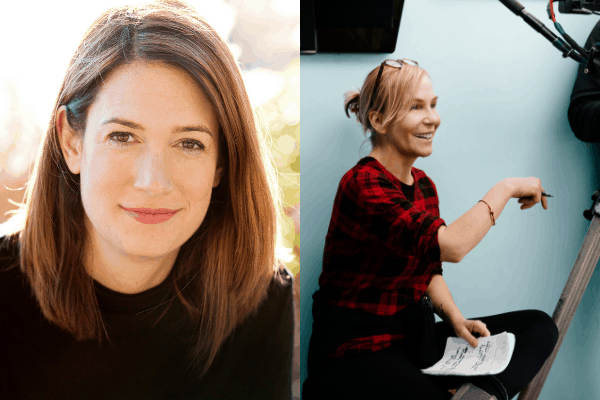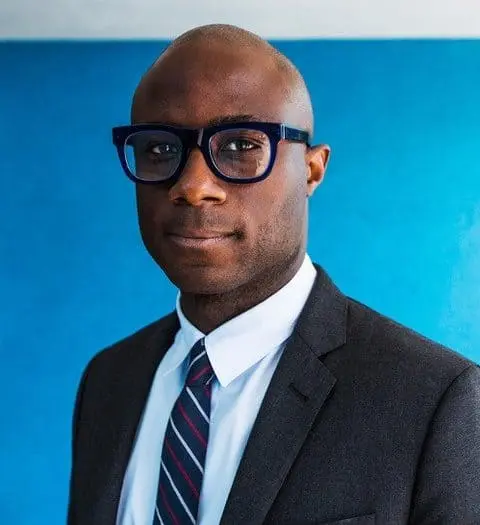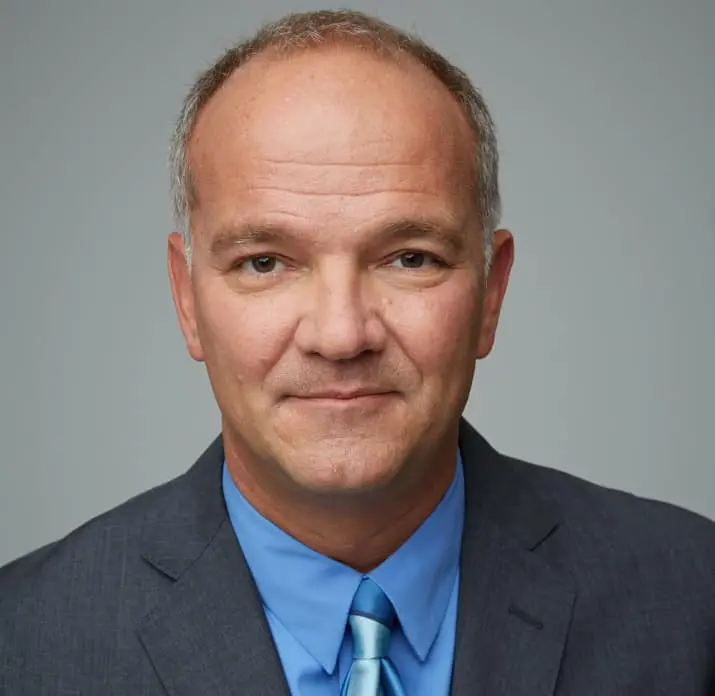At the 2019 PEN America Literary Gala, PEN America presented professor, lawyer, and equal rights advocate Anita Hill with the PEN Courage Award. The youngest of 13 children from a farm in Oklahoma, Hill received her J.D. from Yale Law School in 1980. She began her career in private practice in Washington, D.C. There she also worked at the U. S. Education Department and Equal Employment Opportunity Commission. In 1989, Hill became the first African American to be tenured at the University of Oklahoma, College of Law, where she taught contracts and commercial law. Currently, at Brandeis University, she teaches courses on gender, race, social policy, and legal history.
Read Hill’s full remarks from the award presentation below, with an introduction by actor Lupita Nyong’o.
Lupita Nyong’o
Good evening, everybody. Thank you. In 1991, mainstream America had not begun to have the urgent public conversation we are having today about sexual harassment in the workplace, much less about the intersections of gender, race, and class that so often underlie and enable it.
Anita Hill testified before the Senate Judiciary Committee in the confirmation hearings of Supreme Court Justice Clarence Thomas, with no widespread viral movement like #MeToo surrounding, supporting, and empowering her. And yet, in spite of the pain and humiliation it entailed, and the risk it posed to her accomplished career, Anita made the astonishingly brave decision to step out, alone, forcing a vital voice into what had, until then, been an oppressive silence.
Addressing the 14 white men, who made up the Senate Judiciary Committee, she was talking to a wall. A wall of power. Fortified, through centuries of bias that perpetuated the sense that women and people of color scarcely matter in the realm of American politics. Her actions shook and began to loosen the foundations of that wall. For her, those hearings were just a beginning.
Throughout her career as a professor, lawyer, writer, and author, she has remained a fearless and unwavering champion of women’s rights and has continued to use her voice to lead us in the fight against harassment and abuse.
As an organization that protects and amplifies the voices that those in power seek to silence, it is fitting that PEN America honors Anita Hill tonight. The Courage Award recognizes that those who dare speak out against entrenched power deserve not just the defense that PEN offers all over the world, but also celebration. We must chip away at the repercussions of speaking out, the fear, the ostracization, the isolation, the backlash, while continuing to fight for a world in which those who do so are met with respect and admiration.
Anita Hill had no safety in numbers. She was one woman, calling Time’s Up decades before the wider society was ready to blow that whistle. She made her accusations against a man who would sit on the nation’s highest court and wield power for decades to come. Twenty-eight years later, a paradigm shift is occurring. There is an unstoppable wave of personal and societal revelation and truth-telling that emulates Hill’s initial heroic act with the #MeToo movement, the Time’s Up Movement. We are speaking together.
People across the country and around the world, myself included, have drawn inspiration from Anita Hill’s message. As chair of the Hollywood Commission on Eliminating Sexual Harassment and Advancing Equality, Hill has now brought her leadership to the field in which I have made my own career, and in which I too decided to speak up about my own experience and in which I am committed to advocating against sexism and harassment.
In honoring Anita Hill, PEN America also seeks to fortify the wills of those who follow in her footsteps, speaking out even when they would rather avoid the glare of the spotlight and the years or even decades of scrutiny that can persist long after the cameras have dimmed and the headlines have faded.
Thank you Anita Hill for so boldly demonstrating to women in all fields that raising our voices in public and in the chambers of power is essential to our efforts to make widespread change. Your courageous, groundbreaking work is an example and a benefit to us all. Before we welcome Ms. Hill, please watch this short video which cannot fully depict all that she has done.
Anita Hill
Thank you all, I am truly overwhelmed. This has been a wonderful evening, and to be in the same group with Richard and Bob, it’s just amazing. There’s so many people I want to thank, and I will just start with my family—Chuck, my partner in life and love. And my brother, Ray and his partner, Don. Ray surprised me, I was not expecting to see him tonight and through the work of PEN America it was arranged, and I’m just so proud to be here with him and to represent our family here tonight. Of course, we all want to thank Suzanne and Jennifer for all of the work that they do. And Lupita for that wonderful, warm, and gracious introduction. And, for just being Lupita, right?
So, for nearly a century now, and you all know this, but I think it’s worth hearing again. PEN America has stood as a staunch guardian of literary expression and human rights and more. As a descendant of a people who just a few generations before me, were by law prohibited from learning to read and write, tonight’s honor is particularly meaningful.
By virtue of her race, my maternal grandmother, born in 1870, was never offered a public education, and therefore never learned to read or write. But she saw to it that my mother, our mother, born in 1911, went to school, and my mother read throughout her life, mostly the Bible for Sunday school lessons, Reader’s Digest, and the Oklahoma Daily Times, our local newspaper. And our mother wrote, she wrote letters to me regularly during my college years, and her letters typically chronicled farm life, turf life, and family life. Though she passed away years ago, when I read her letters, I hear her voice. Yet I also wonder what all she might have written if she had felt truly free to express all aspects of her life.
In 1991, under the glare of intense political and media scrutiny, I shared more of what it is, the whole experience, the entirety of the experience, of being a woman, a woman in the workplace in particular. But I was also sharing the experience of what it’s like to be black, and finally to be a black woman facing sexual harassment. I testified but soon learned that my right to speak freely about the truth of my experience was in fact limited.
I will say that, as I was under the scrutiny of media, in the end, it was media, one outlet, that gave me hope very early on, that my life would not always be limited, that my ability to speak out would in one way or another become protected. And that media was a woman’s magazine, Glamour Magazine. And it was the editor Ruth Whitney who saw to it that I was recognized in that moment, weeks after the hearing, which was an act of courage in and of itself, journalistic courage, and Cindy Leavy from Glamour Magazine is here tonight, and so I just want to proudly thank Glamour for all your work.
With or without Glamour Magazine, people ask the question, they’ve started asking me really back in 1991, would I testify again? Would I do all this again? And the answer is always: Yes, I would.
And over 28 years, you get a chance to think about why that answer is true, and there are a number of reasons I would say yes, I would testify again. In part, because I’m a lawyer, and I believe in the sanctity and the integrity of our nation’s highest court. And I believe that that is only as true, the integrity is only as true and complete, as the members who are on the court. And yes I would testify again.
I also would testify again because I am really a product of some of the decisions made by the Supreme Court, in my lifetime, and just before my lifetime. I call myself a Brown v. Board of Education baby. And many of you who are here tonight are as well. Regardless of your race, you have been impacted by that case. The Supreme Court matters, and so yes I would testify again.
And finally, I say I would testify again because I believe in equal justice under the law in its broadest sense, and in this one detail. And that is that every individual regardless of age, race, sexual identity, disability, religion, color, gender, or gender identity, has the right to be schooled, worked, walk the streets, and live in their homes free from gender violence.
It did not take 28 years, but it did take more than the hearings, but I today am here to say I have my voice. And my ancestor story, even though I’ve only told a small portion of it, reminds me that I must never take having my voice for granted. And I must never abuse it. It’s taken generations to gain this privilege—the privilege that I have to write and to speak out with the truth, and to speak truth to power. It’s taken that long. And I will never, ever give it up.
So I want to thank PEN America, this honor and your unwavering support for journalism, for writing, and the people who do both jobs, will enable me to continue on the path, which I believe is the path to move another generation closer to fairness, equality, and justice. This is an aspiration I share with Lupita and millions of others whose individual and collective voices have become known as the #MeToo Movement. This is the dream I hope that I share with you in the audience here tonight. Not only for tonight, but in the future, in the days, in the weeks, in the years to come.
I will close by saying we are determined that change will come. And, I will borrow a phrase or some words from one of my heroes the civil rights leader, Ella Baker: “I will stay, on this path, because we who believe in freedom, in free expression, and who believe in human rights, shall not rest until they come for everyone.” Thank you and goodnight.


